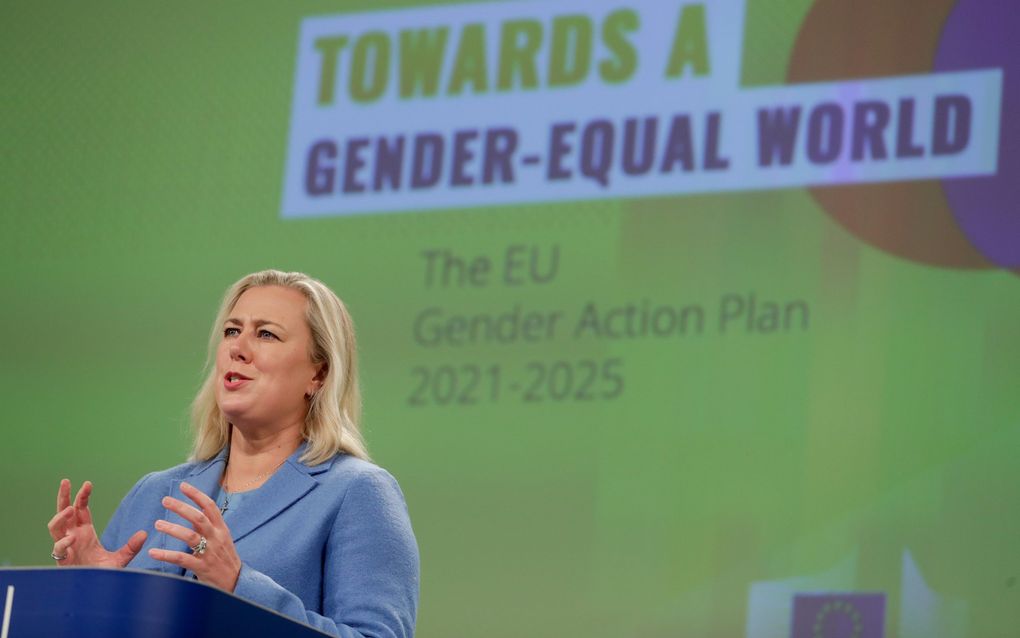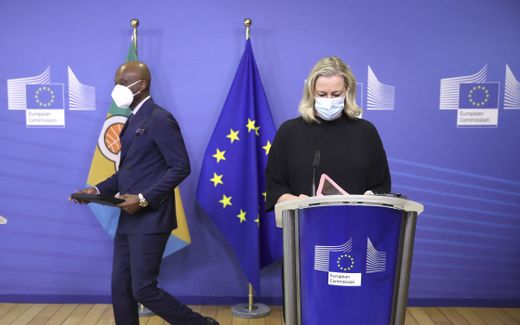Council of Europe: Member states do not work hard enough on gender recognition

European Commissioner in Charge of International Partnerships Jutta Urpilainen presents the EU Action Plan on Gender Equality and Women Empowerment. Photo EPA, Stephanie Lecocq
European Union
European countries do not work hard enough on gender recognition. That is the conclusion of a report from the Council of Europe (CoE). Some countries should remove age barriers for children as well.
According to the Council, support for the rights of LGBT people is “firmly taking root in Europe”. There are, however, substantial differences between countries. That needs to change, the Council of Europe thinks.
At the moment, 38 member states (the CoE has a total of 46) have the legal or administrative procedures to ensure gender recognition. However, in some countries, there is no clear procedure in place. Others have “rolled back existing protection”. According to the Council, this makes them more vulnerable to discrimination and violence.
Earlier this year, the Council of Europe approved a report condemning “extensive and often virulent” attacks on LGBT+ rights in Hungary, Poland, Turkey and the United Kingdom.
Economic
The Council makes some recommendations to change the current situation across Europe. Member states who do not have anti-discrimination laws in place should move toward introducing them. Motives linked to the victim’s gender identity or sex characteristics should be considered “aggravating circumstances”.
Furthermore, the Council lists a few countries that have recently removed age barriers for children to start treatments changing their gender: Finland, Denmark and Sweden. According to the Council, these “positive examples” might influence other countries to do the same.
The Council of Europe considers gender equality important to countries’ economic growth. The Council cannot make laws but does have the ability to push for the enforcement of select international agreements reached by member states on various topics. The best-known body of the Council of Europe is the European Court of Human Rights, which functions on the basis of the European Convention on Human Rights.
Related Articles






